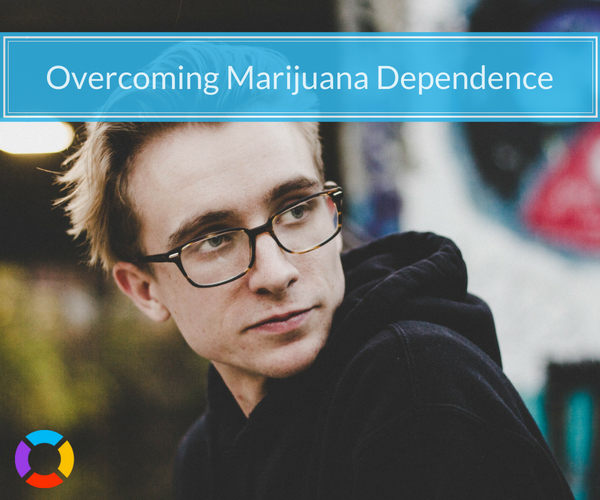Marijuana Detox: How to Quit, Manage Withdrawal Symptoms and Stay Clean

While marijuana use is gaining traction in mainstream society as a harmless or beneficial activity, regular and long term use is not without serious risk. For many people, frequent use leads to dependence or addictions, and marijuana detox can be a prolonged process.
In March 2025, the Centers for Disease Control estimated that approximately 3 in 10 marijuana users have cannabis use disorder (CUD). As with any addiction, CUD can have a negative impact on your physical, mental and emotional well being.
For individuals who’ve developed dependence to marijuana, they might be wondering how to quit smoking weed. The first step towards recovery is acknowledging they have a problem.
They can then enroll in detox to manage withdrawal symptoms and develop the clarity needed to successfully participate in an individualized treatment plan. These plans equip you with the tools to live a life without the burden of addiction.
Call now to find marijuana detox centers near you!
What is Marijuana Addiction?
Marijuana is a drug derived from the dried leaves, flowers, stems and seeds of the cannabis plant.
Although it contains several different chemical compounds, tetrahydrocannabinol (THC) is the main substance that creates the mind-altering effects that marijuana is commonly used for. Marijuana is also referred to as pot, weed, grass, ganja, chronic, dank or nug.
Marijuana dependence occurs when the brain adapts to the drug via regular use. This results in tolerance and physical withdrawal symptoms when usage ends.
The DEA Drug Schedule has classified marijuana as a Schedule l drug. This means it has a high abuse potential and no medical use in the United States.
Although it’s illegal on the federal level as of March 2025, 24 states and Washington, D.C. have legalized recreational use, with 39 states and Washington, D.C. allowing for its use due to certain medical conditions.
The Substance Abuse and Mental Health Services Administration has noted that as of 2021, marijuana was the most common illicit drug in the United States. Marijuana use was highest among people aged 18 to 25, followed by adults 26 and older and adolescents aged 12 to 17.
Ethnically, individuals of American Indian or Alaska Native descent had the highest percentage of people who used marijuana. Of all admissions to licensed or certified substance use treatment facilities, 9.8% of those admissions were due to CUD.
What are Signs of Addiction?
Marijuana addiction is a problematic pattern of marijuana use despite the negative consequences on one’s life when doing so. Problems can arise at home or work, in relationships or with mental health. CUDs can range from mild to severe and cause physical and psychological effects.
Signs of Cannabis Use Disorder
Signs that you may have CUD include:
- Using marijuana in larger amounts or over a longer period than originally intended
- Persistent desire or unsuccessful efforts to cut down or control marijuana use
- Spending a lot of time getting, using or recovering from the effects of marijuana
- Craving or a strong desire to use marijuana
- Using marijuana even though it causes problems at work, school or home
- Continuing to use marijuana despite social or relationship problems
- Giving up important hobbies or activities with friends and family or in the workplace to use marijuana
- Using marijuana in situations with a risk of injury
- Continued use despite knowing that ongoing physical or psychological problems have been caused or worsened by marijuana use
- Marijuana tolerance, which is the need for an increased amount of the drug to achieve the desired effect
- Withdrawal symptoms after stopping use
Risk Factors for Cannabis Use Disorder
Risk Factors for developing CUD often consist of the following:
- Initiation of marijuana use during adolescence or early adulthood
- Family history of substance use disorder
- Method of use, including edibles, concentrates or vaping, increases the chances of CUD
- Pre-existing mental health conditions such as depression or anxiety
- Concurrent substance use such as alcohol, nicotine or other drugs
- A higher frequency of use increases the risk of developing CUD
- The more potent the level of THC, the greater the risk of developing CUD
- Peer pressure
- Lack of family involvement or living in a dysfunctional environment
- Genetics can predispose a person to CUD
- Childhood trauma, including early exposure to traumatic events, abuse or neglect, increases the risk of developing CUD
Don’t wait to get clean. Call today.
Marijuana Withdrawal Symptoms and Timeline
Individuals who’ve developed a dependence to marijuana or cannabis use disorder often exhibit withdrawal symptoms when trying to stop. These symptoms are referred to as cannabis withdrawal syndrome.
According to the Cleveland Clinic, out of a study that included 23,000 regular marijuana users, 47% of participants experienced withdrawal symptoms when trying to stop or cut back.
What happens when you stop smoking weed or significantly reduce the amount of marijuana that you use is that withdrawal symptoms generally begin within 24-48 hours. Withdrawal usually peaks by day three.
In terms of how long pot withdrawals last, they can linger for two to three weeks. The severity and duration of withdrawal symptoms vary from person to person. Although withdrawing from marijuana use is not life threatening, it’s often uncomfortable.
Weed withdrawal symptoms include:
- Anger, irritability and aggression
- Nervousness and anxiety
- Restlessness
- Decreased appetite that may cause weight loss
- Depressed mood
- Insomnia
- Disturbing dreams and nightmares
- Headaches
- Nausea and vomiting
- Excessive sweating
- Abdominal pain
- Tremors
How to Detox from Marijuana
Marijuana detox is a process where the body clears itself of THC. Fortunately, detoxing doesn’t pose any life threatening symptoms. However, the process can be rather uncomfortable and stressful. For this reason, marijuana detox is sometimes done in a residential treatment facility.
Individuals with mental health or physical conditions may see them worsen during detox and should consider inpatient care. Likewise, those with severe addictions to marijuana or use multiple substances such as opioids or alcohol should seek medically assisted detox.
There are currently no medications that are FDA-approved for the indication of weed detox; however, some doctors may prescribe medications to help you manage withdrawal symptoms. Medically assisted marijuana detox involves supportive care like 24/7 monitoring and early interventions to ease anxiety or aid in sleep.
Additionally, a personalized structured routine involving individual and group therapy, nutritional counseling, physical activity, education courses, holistic treatments and relapse prevention planning can make the process easier for long term recovery.
Why Rehab Works for Weed Addiction
Individuals experiencing CUDs benefit from rehab because it helps them to regain control from the lasting effects of weed, like temptations to relapse. One component of successful cannabis use disorder treatment is psychotherapy.
Utilizing behavioral therapies that include dialectical behavioral therapy (DBT), motivational enhancement therapy (MET) and contingency management (CM) has been shown to improve coping skills and reduce the frequency and quantity of marijuana use.
Treatment Options for Marijuana Addiction
Choosing the right treatment option for marijuana addiction depends on several factors. Consider the severity of the addiction, co-occurring disorders and your willingness to stop using.
Inpatient or residential treatment for cannabis use disorder provides safe environments to help individuals with long term marijuana use or severe addiction address their addiction. Inpatient care consists of structured individual treatment plans with behavioral therapies, individual and group counseling, education and relapse prevention planning.
Outpatient rehab for weed addiction is best for those with mild to moderate addiction or for those who can’t commit to residing at a residential treatment facility. Treatment includes the same behavioral therapies, counseling, education and aftercare used during inpatient treatment without a structured daily schedule and around-the-clock support.
Support groups such as marijuana anonymous or SMART Recovery are essential to successful recovery for many people with CUD. These are often free, peer-directed and focus on using proven principles to improve accountability and offer encouragement for long term recovery.
It’s stressful to quit alone. Get help now.
Benefits of Quitting Marijuana
Ending problematic marijuana use leads to improved health and lifestyle changes. These often consist of physical, mental and emotional improvements.
Physical Improvements When You Quit Marijuana
Your bodily health will likely improve once you stop using weed. Advantages include the following:
- Improved lung and heart health
- Increased energy and motivation
- Improved sleep
- Healthier pregnancies
- Reduced risk of injury or accidents
Mental and Emotional Benefits of Quitting Marijuana
Your mental and psychological wellbeing also enhances. Here are some common improvements that many people experience:
- Improved cognitive function, including memory, concentration and problem solving skills
- Reduced risk of anxiety, depression and psychosis
- Increased self esteem
- Improved relationships
- Greater productivity at school or work
Ready to Quit? Next Steps
The first step, and sometimes the hardest in the recovery process, is acknowledging that you need help. There are treatment programs across the country that can provide the help you need to combat cannabis use disorder. Resources such as Detox.com can help you find the facility and program that meets your unique needs.
Seeking treatment isn’t a sign of weakness. It actually takes a lot of strength to regain control of your life, find balance and break the cycle of addiction. Make the call and learn how to stop smoking weed. A brighter future without addiction is possible.


